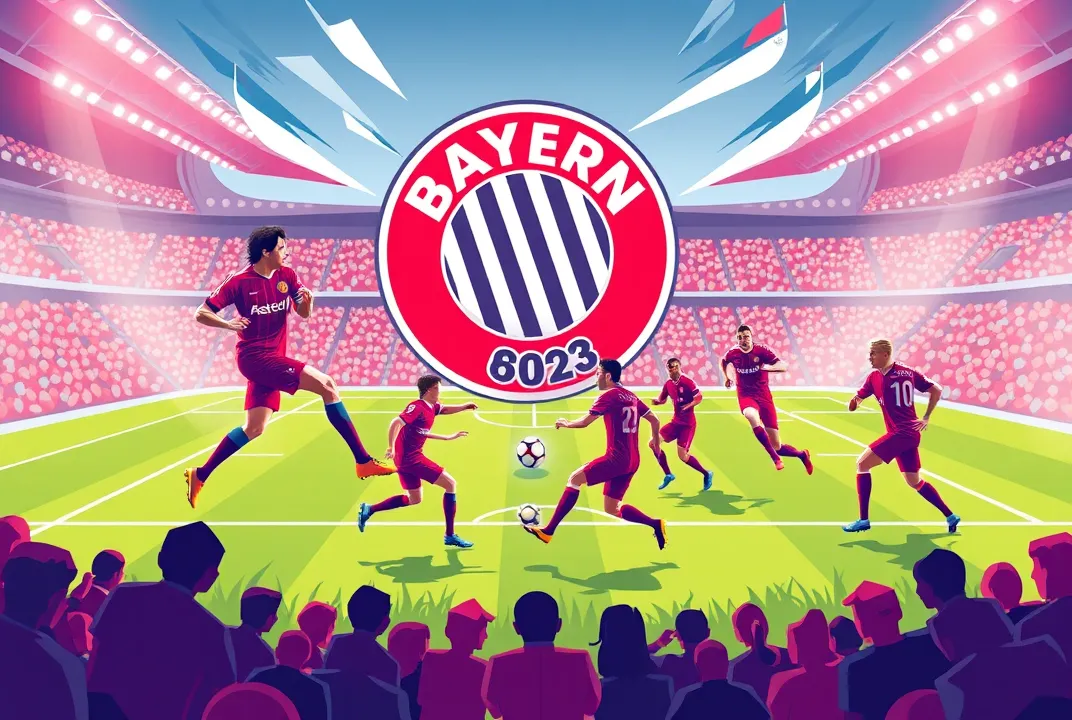Introduction
As the sun set over the iconic Amex Stadium in Brighton, a palpable sense of excitement filled the air. It was a pivotal clash in the Premier League: Brighton & Hove Albion versus Chelsea FC. This match wasn't just another fixture on the calendar; it was a showcase of contrasting strategies, rich club histories, and a battleground for pride and ambition in English football. With each team fighting for their place in the league, the stakes were high, and fans were eager to witness a display of skill and strategy that would echo through the season.
Recent Developments
The lead-up to the match was charged with narratives that had fans buzzing. Brighton, under the astute management of Roberto De Zerbi, had been on an impressive run, showcasing their attacking prowess and tactical flexibility. They had recently secured a thrilling victory over a top-six rival, igniting hopes for a European spot. Meanwhile, Chelsea, reeling from inconsistent performances, had made some key signings in the summer transfer window, aiming to solidify their squad and regain their place among England’s elite.
Brighton's Form and Strategy
Brighton entered the match with a newfound confidence. Their style of play, characterized by quick transitions and fluid attacking movements, had become a hallmark of De Zerbi’s philosophy. The Seagulls had become a team known for their tactical discipline, with players like Kaoru Mitoma and Evan Ferguson leading the charge. Mitoma's ability to stretch defenses with his pace and skill had been a revelation, while Ferguson, the young striker, had been turning heads with his poise in front of goal.
In their last encounter, Brighton had demonstrated resilience against a top-tier opponent, coming from behind to secure a 3-2 victory. This performance not only boosted morale but also affirmed their place as serious contenders in the league. Fans were buzzing about the possibility of European football, and the atmosphere at Amex Stadium promised a vibrant display of support.
Chelsea's Challenges and Adaptations
On the other hand, Chelsea had been grappling with inconsistency. Despite boasting a talented squad filled with high-profile players like Raheem Sterling and Enzo Fernández, they struggled to find cohesion on the pitch. The Blues had endured a mixed bag of results, leading to questions about Graham Potter's tactics and their ability to challenge for a top-four finish.
In the weeks leading up to the match, Chelsea had focused on strengthening their defensive organization and improving their attacking efficiency. The introduction of a more fluid 4-2-3-1 formation aimed to maximize the impact of their attacking talent while providing a sturdy foundation at the back. The rivalry was set not only to be a clash of skill but also a test of managerial acumen, with both coaches vying to outwit one another.
The Matchday Experience
As the teams lined up, the atmosphere reached a fever pitch. Brighton's supporters waved flags and sang songs, creating a wall of sound that echoed throughout the stadium. Chelsea’s traveling fans, determined to make their presence felt, responded with chants of their own, setting the stage for what promised to be an unforgettable encounter.
First Half: Tactical Battles
From the kickoff, it was clear that both teams were eager to impose their style. Brighton, with their high pressing, looked to disrupt Chelsea's build-up play, while the Blues attempted to exploit spaces on the break. The first significant chance came when Mitoma weaved past two defenders, forcing a fine save from Chelsea’s goalkeeper, Robert Sánchez.
As the first half progressed, Brighton’s dominance in midfield became apparent. The combination of Alexis Mac Allister’s vision and Moisés Caicedo’s relentless energy allowed them to control the tempo. They capitalized on their momentum, with Mitoma finding the back of the net in the 32nd minute, sending the home crowd into raptures.
Second Half: Chelsea's Response
However, Chelsea was far from finished. The halftime break provided Potter with the opportunity to recalibrate his strategy. In the second half, the Blues emerged with renewed vigor, pushing for an equalizer. Sterling, who had been quiet in the first half, started to find space on the flanks, creating opportunities for his teammates.
In the 63rd minute, Chelsea’s persistence paid off. A well-executed corner taken by Fernández found the head of Kalidou Koulibaly, who powered the ball into the net. The Chelsea fans erupted, and the momentum shifted in their favor.
The Final Moments
As the match approached its conclusion, both teams continued to search for the decisive goal. Brighton, emboldened by their home crowd, pressed forward with ferocity. Their efforts culminated in a frantic finish, with both goalkeepers making crucial saves to keep the score level.
In a moment of pure drama, just two minutes from time, Brighton won a free-kick on the edge of the box. With the Amex buzzing, Pascal Groß stepped up and curled a sublime shot that rattled the crossbar, sending shockwaves through the stadium. The final whistle blew shortly after, ending the contest at 1-1, a result that left both teams with mixed feelings.
Implications of the Match
While the draw may have been a disappointment for Brighton, it reinforced their status as a competitive force in the league. The Seagulls showcased their tactical prowess and resilience, continuing to build on their strong start to the season. Fans left the stadium hopeful, knowing their team was capable of challenging anyone.
For Chelsea, the draw served as a wakeup call. While they had salvaged a point, questions about their consistency and ability to execute under pressure remained. Manager Graham Potter faced scrutiny, but the performance in the second half offered a glimmer of hope. The Blues needed to translate this into future matches if they hoped to secure Champions League football.
Conclusion
The clash between Brighton and Chelsea was more than just a match; it was a testament to the evolving landscape of English football. With both teams displaying moments of brilliance and tactical nuance, the Premier League's unpredictability was once again on full display. As the season unfolded, fans could look forward to more thrilling encounters, each telling a unique story of ambition, strategy, and the unyielding spirit of competition. In the end, football is not just about the results; it’s about the journey, the passion, and the unforgettable moments that bring fans together.


 Bayern Munich: Dominating the Pitch and Redefining European Football
Bayern Munich: Dominating the Pitch and Redefining European Football
 PSG vs Man City: Clash of Titans - A Thrilling Battle for European Glory!
PSG vs Man City: Clash of Titans - A Thrilling Battle for European Glory!
 Unraveling the Excitement of UEFA Champions League 2023
Unraveling the Excitement of UEFA Champions League 2023
 Unraveling the Premier League: Top Teams and Key Moments
Unraveling the Premier League: Top Teams and Key Moments
 Bournemouth vs Tottenham: Key Match Insights and Predictions
Bournemouth vs Tottenham: Key Match Insights and Predictions